Why Your Morning Coffee Isn’t Giving You an Energy Boost: Insights and Solutions

Why Your Morning Coffee Isn’t Giving You an Energy Boost: Insights and Solutions
Jul 23, 2025 | By JOI team
Ever wondered why some days your coffee feels like rocket fuel, and others… it’s just warm comfort in a mug? You’re not imagining things. Caffeine’s effectiveness can vary wildly depending on a mix of biological, environmental, and even genetic factors. But don’t worry — this isn’t just another article about quitting coffee (we’d never). It’s about making your coffee work for you.
In this guide, we’ll explore the science behind caffeine’s impact, the brewing methods that actually matter, and how personal habits like hydration and sleep can make or break your buzz.
The Real Reason Your Coffee Isn’t Working: Caffeine Effectiveness Explained
Caffeine is a stimulant that works primarily by blocking adenosine, a neurotransmitter that promotes sleep and relaxation in the brain. When adenosine is blocked, neural activity increases, leading to heightened alertness and reduced fatigue. According to the Sleep Foundation, this mechanism is why caffeine can temporarily mask tiredness — but it doesn’t eliminate the underlying sleep pressure.
Caffeine & Sleep: A Vicious Cycle
But when you’re sleep-deprived, your brain compensates by producing more adenosine, making it harder for caffeine to block its effects effectively. Research shows that sleep deprivation leads to increased accumulation of extracellular adenosine in the brain, contributing to reduced alertness despite caffeine intake.
How Coffee Brewing Methods and Bean Types Impact Your Energy Boost
Not all coffee is created equal. The caffeine content and effectiveness of your brew are heavily influenced by both the type of bean and how it’s prepared.
- Espresso vs. Drip: Espresso has more caffeine per ounce, but you typically consume less of it.
- Light vs. Dark Roast: Light roast coffee has more caffeine than dark roast.
- Brewing Time & Temperature: Longer steep times (French press, cold brew) extract more caffeine than drip methods.
Pro Tip: Try a medium roast Arabica via pour-over for a smooth, consistent caffeine release.

Personal Factors That Influence Caffeine Metabolism
Caffeine affects everyone differently. Your age, weight, sex, liver enzyme function, and genetics can determine how quickly your body processes caffeine.
Some people have a variant of the CYP1A2 gene, which influences whether you're a fast or slow caffeine metabolizer. Studies show slow metabolizers may experience stronger effects from caffeine, like anxiety or poor sleep, even at low doses.
What You Can Do: Consider a genetic test or track your response to caffeine across different doses and times.
The Role of Hydration: Coffee Isn’t Water
Caffeine is a mild diuretic, meaning it can increase fluid loss. While coffee contributes to your fluid intake, it shouldn’t replace water.
Hydration Hack: For every cup of coffee, drink a glass of water. Better hydration = better caffeine uptake.
Enhance Your Coffee Routine With These Simple Tweaks
Personalize Your Caffeine Intake
- Timing (morning vs. afternoon)
- Dose (50mg–200mg)
- Type (espresso, cold brew, pour-over)
Tracking your alertness post-cup helps dial in the perfect caffeine routine for you.
Balance Coffee With Proper Hydration
Staying hydrated enhances caffeine’s benefits and avoids the dreaded midday crash.
The Connection Between Mood, Stress & Caffeine Sensitivity
- High cortisol amplifies caffeine’s jittery effects.
- Low blood sugar increases fatigue despite caffeine.
- Poor diet can reduce caffeine metabolism efficiency.
Optimize Your Day: Pair your coffee with a balanced breakfast of protein and healthy fats to stabilize energy.
Better yet, upgrade your cup with JOI. Unlike boxed plant milks, JOI’s concentrates offer significantly more protein, healthy fats, and fiber — delivering balanced energy and a richer, creamier experience.
Why Choose JOI's Plant-Based Milk Options?
Clean, creamy, and free from additives — JOI’s plant-based milk concentrates support both your coffee and wellness goals.
- No gums, preservatives, or seed oils
- Customizable servings to reduce waste
- Lower carbon footprint vs. boxed milk
Tips for Making the Most of JOI in Your Cup
- Try our Oat Creamer with MCT and avocado oil for gut-friendly fats that support blood sugar balance without unnecessary spikes — and unlike most conventional creamers, it’s made without inflammatory seed oils.
- Adjust your milk-to-coffee ratio for taste and texture.
- Swap in matcha or cacao for lower-caffeine energy boosts.

FAQs About Coffee and Caffeine
Q: How much coffee is too much?
A: Keep caffeine below 400mg/day — about 3–4 cups for most adults.
Q: Can I develop a tolerance?
A: Yes. Regular use can reduce effects. Take occasional breaks to reset.
Q: Which beans have the most caffeine?
A: Robusta beans have nearly double the caffeine of Arabica.
Final Brewed Thoughts: It’s Not Just the Coffee — It’s the Context
Coffee is a ritual. But for it to truly energize, your whole routine — sleep, hydration, diet, genetics — has to support it.
By understanding your caffeine metabolism, experimenting with brewing methods, and choosing clean products like JOI’s creamers, you can turn your daily brew into a reliable energy ritual.
So go ahead. Sip smarter.





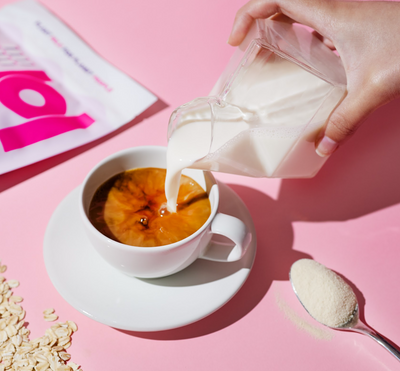
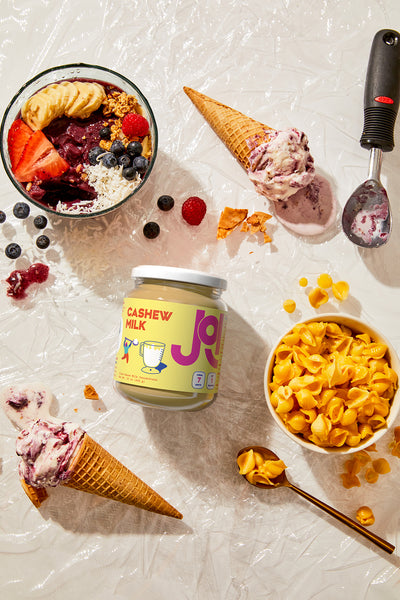
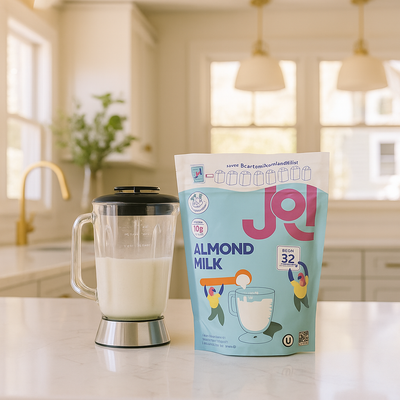
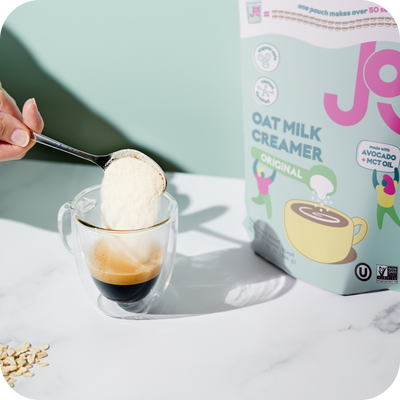
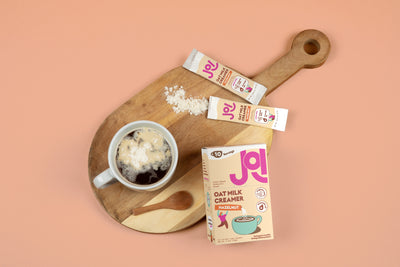
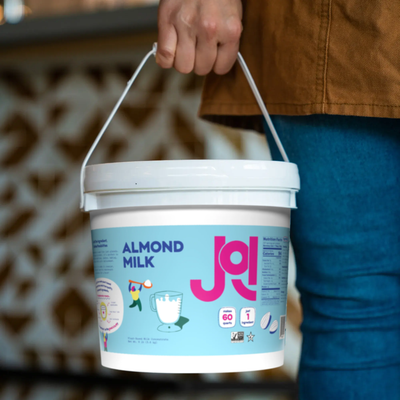
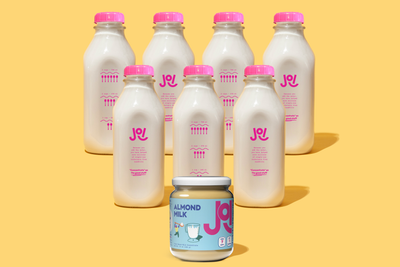
 CHECKOUT
CHECKOUT